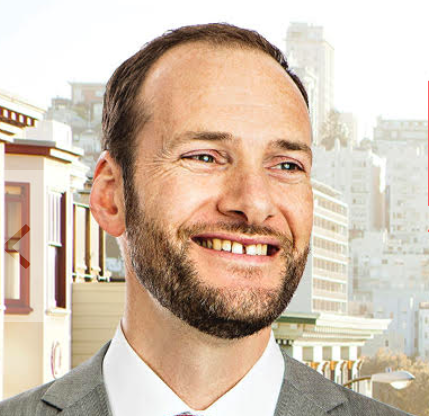
Chesa Boudin has not taken the oath of office. He won’t be sworn in as San Francisco’s district attorney until January. He has taken no action, made no policy decisions, hired nobody.
And he’s already under attack – not just locally but nationally.

The tone of the hit pieces in the news media give us a clue of how everyone from the Wall Street Journal to the Chron are going to treat one of the most progressives DAs in the country – and how they are going to try to marginalize and undermine him from the start.
Hint: They are calling him a commie. Apparently red-baiting is still alive and well, not only in the offices of the WSJ but at Fifth and Mission.
We can start with the WSJ, since it’s so over the top.
Here you go:
After college Mr. Boudin moved to Venezuela to work for Hugo Chávez’s dictatorship and in 2009 wrote an article hailing Chávez’s successful elimination of term limits. A Marxist can in theory faithfully enforce the laws of California, yet Mr. Boudin says he won’t. “Crimes such as public camping, offering or soliciting sex, public urination, blocking a sidewalk, etc should not and will not be prosecuted,” he said in an ACLU candidate questionnaire.
Mr. Boudin has blamed San Francisco’s homelessness crisis on evictions and vows to crack down on “corporate landlords.” Most homeless are mentally ill and the crisis has grown worse despite the city’s massive investment in public housing. Harassing property owners will further increase rents and inequality.
Okay, let’s just unpack this for a second.
Hugo Chavez was the elected president of Venezuela. Boudin worked for a short time as a translator. The idea that the WSJ calls him a “dictator” and suggests that Boudin was somehow a part of his regime is bizarre. But: It’s all about red-baiting, and Hugo Chavez is a convenient villain.
We all know that there are big corporate landlords (and we don’t need the WSJ’s quotation marks) who are responsible for evictions that lead to homelessness. For the record, most homeless people are not mentally ill, and the city has not made a “massive investment” in public housing.
So yeah, the WSH is factually wrong out of control – although it’s significant that a publication that has never shown much interest in the criminal justice system in San Francisco has decided to make Boudin’s election an issue. We can expect more from the right-wing and even the more “mainstream” news media.
But let’s come back home to San Francisco, where the Chron’s editorial page editor, John Diaz, ought to know better.
The race for district attorney went to the wire with a victory for Chesa Boudin, whose platform included a vow to limit, if not eliminate, prosecution for the type of street crimes that San Franciscans are up in arms about. As political strategist Nathan Ballard noted, Boudin ran “somewhere to the left of Hugo Chavez.”
Boudin secured a little more than a third of the first-place votes. That means 2 out of 3 San Franciscans preferred Loftus or two candidates (Nancy Tung, Leif Dautch) who were even more resolutely law-and-order than she was.
Wow! There’s Chavez again, emerging from the grave as grounds to attack Boudin.
V. Roy Lefcourt, a prominent local lawyer and activist, found this astonishing, and send the Chron a letter, which the paper did not run.
Here’s what he said:
It is one thing for the Police Officers Association’s republican consultants to use Willie Horton scare tactics to inflame the public against Chesa Boudin but it is quite another thing for John Diaz to quote a political consultant’s description of Boudin’s politics as left of Hugo Chavez. That’s red baiting, a Joseph McCarthy tactic. Diaz is offended that Supervisor Sandra Fewer led a chant to f… the POA but neither he, nor the editorial board, ever voiced criticism of the POA’s obscene spending of nearly $700,000 to defame Boudin. Maybe the use of the F word is offensive to some but unprincipled, smear tactics are offensive to democracy.
And the Diaz piece is also radically uninformed. Of course Boudin got only a little more than a third of the first-place votes. Chron favorite Suzy Loftus got 31 percent of those votes, and Boudin got 35 percent.
In a race with four credible candidates who all had well-funded campaigns, it’s highly unlikely anyone would wind up with more than a third of the votes.
San Francisco uses ranked-choice voting to decide elections. Diaz wasn’t upset when that system put his candidate, London Breed, in the Mayor’s Office. This time, while a majority of the supporters of the two other more law-and-order candidates favored Loftus, a significant number went with Boudin – in part, perhaps, because they were angry that the mayor had put Loftus in the position of incumbency just weeks before the election.
Boudin ran a compelling campaign, and the voters put him in office. He’s going to have to prove himself as DA, the same way anyone else would. But the idea that he is getting red-baited and dismissed before he even moves into his office makes you wonder if the local and national news media will even give him a chance.

